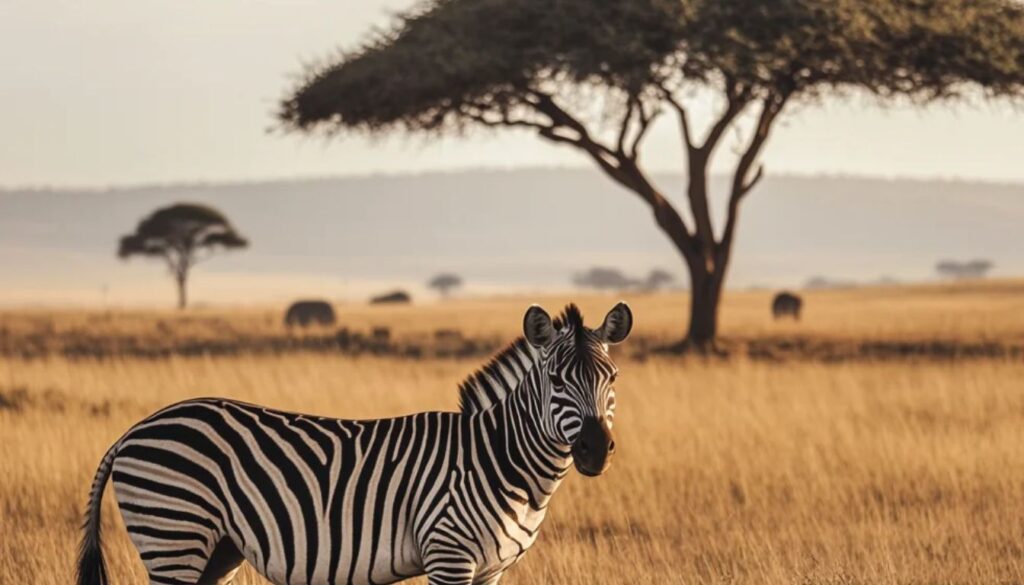An African safari promises adventure, breathtaking landscapes, and the chance to see some of the world’s most iconic wildlife up close. However, planning a safari requires careful preparation to ensure it’s as memorable and enjoyable as possible. Here’s a step-by-step guide to help you organize a bucket-list safari experience.
1. Determine Your Safari Destination
Africa offers a wide range of safari destinations, each with unique experiences, wildlife, and landscapes. Choosing the right destination is essential to getting the most out of your trip.
- Top Destinations:
- Kenya: Known for the Great Migration in the Masai Mara.
- Tanzania: The Serengeti and Ngorongoro Crater are top wildlife hotspots.
- South Africa: Kruger National Park offers both luxury and budget-friendly safari options.
- Botswana: The Okavango Delta is famed for its water-based safaris.
- Namibia: Stunning desert landscapes and the wildlife of Etosha National Park.
- Uganda and Rwanda: Ideal for mountain gorilla trekking.
When choosing your destination, consider what wildlife you’d like to see and the type of experience you’re after. For example, the African Wildlife Foundation’s Safari Planning Guide offers insights into each destination’s unique features.
2. Choose the Best Time to Go
Timing can significantly impact your safari experience. Africa’s seasons, primarily the dry and wet seasons, influence both weather and wildlife behavior.
- Dry Season (June to October): This season is ideal for wildlife viewing as animals gather around water sources, making them easier to spot.
- Wet Season (November to April): Known as the “green season,” this period offers lush landscapes, baby animals, and bird migrations, though animal spotting may be more challenging.
If your goal is to witness events like the Great Migration, research the timing, as this natural spectacle occurs mainly between July and October in the Serengeti and Masai Mara regions.
3. Set Your Budget
Safari costs vary widely based on destination, accommodation type, and trip duration. Setting a budget helps narrow down your options and ensures you get the best experience without breaking the bank.
- Budget Breakdown:
- Accommodation: Options range from luxury lodges to budget camping.
- Park Fees: These vary by country and park.
- Transportation: Whether flying into remote areas or going by road.
- Additional Costs: Tips, meals, and optional activities like hot air balloon rides.
Traveling in the shoulder seasons or booking group tours can help reduce costs. For travel safety and health insights, refer to the World Health Organization’s Travel Health Guide.
4. Decide on the Type of Safari
Understanding the different types of safaris can help you tailor the experience to your interests and physical abilities.
- Types of Safaris:
- Game Drives: The most common type, where you travel in a vehicle to spot wildlife.
- Walking Safaris: Allows you to experience wildlife up close, often led by an experienced ranger.
- Boat Safaris: Popular in regions like the Okavango Delta and Chobe River.
- Balloon Safaris: Offers aerial views of the landscapes and wildlife below.
Consider your preferences and health, as some safari types, like walking safaris, may require more physical fitness.
5. Select Your Accommodation
Choosing the right accommodation impacts both your budget and your experience. Options range from luxurious lodges to more rustic tented camps.
- Accommodation Types:
- Lodges: Provide amenities like restaurants and pools and may be located within or near parks.
- Tented Camps: Combine comfort with close-to-nature experiences, often semi-permanent.
- Mobile Camps: Temporary camps that move with wildlife migrations for the best viewing experiences.
Look into the location and style of each option to see if it aligns with your desired level of comfort and immersion in nature.
6. Plan Your Itinerary
A well-planned itinerary balances adventure with relaxation, allowing you to fully experience Africa’s wilderness while avoiding travel fatigue.
- Itinerary Tips:
- Allocate at least two days per major park or destination to maximize wildlife sightings.
- Include cultural visits, such as local village tours or craft markets, for a well-rounded experience.
- Avoid packing in too many destinations to prevent feeling rushed and tired.
Remember to plan for travel time between parks, as distances in Africa can be vast, and some parks require air transfers.
7. Health and Safety Precautions
Staying healthy and safe during your safari is essential. Be proactive with vaccinations and precautions to ensure a worry-free trip.
- Health Recommendations:
- Vaccinations: Consider vaccinations for yellow fever, typhoid, and hepatitis A and B.
- Malaria Prevention: Carry antimalarial medication and insect repellent.
- Travel Insurance: Comprehensive travel insurance that covers medical evacuation is essential.
Your travel clinic or doctor can provide personalized advice on health requirements based on your itinerary.
8. Packing Essentials
Packing for a safari requires a blend of practicality and minimalism. Key items help you stay comfortable and protected while making the most of your wildlife encounters.
- What to Pack:
- Clothing: Neutral-colored clothing to blend into the surroundings and lightweight layers for changing weather.
- Gear: Binoculars, a good camera, and a zoom lens for wildlife photography.
- Personal Items: Sunscreen, insect repellent, travel documents, and any medications.
Many lodges offer laundry services, allowing you to pack light while still staying fresh.
9. Understand Cultural Etiquette
Respecting local cultures enhances your safari experience and promotes positive interactions with local communities.
- Etiquette Tips:
- Dress modestly when visiting local villages and markets.
- Always ask permission before taking photos of people.
- Tipping: In many African countries, tipping guides and staff is customary and appreciated.
Taking the time to learn a few greetings or phrases in the local language can also foster goodwill.
10. Book with Reputable Safari Operators
A reputable safari operator can make the difference between a smooth, enriching experience and a disappointing one. Look for companies with positive reviews and memberships in professional safari associations.
- What to Look For:
- Credentials: Choose operators who are members of local or international travel associations.
- Transparent Pricing: Be wary of operators with hidden fees.
- Ethical Practices: Support operators who promote sustainable tourism and respect wildlife and local communities.
Explore resources like the Lonely Planet’s Africa Travel Guide for additional information on ethical and reputable operators.
FAQ
- What is the best time of year to go on an African safari?
- Generally, the dry season (June to October) is ideal for spotting wildlife as animals congregate around water sources.
- How much does an African safari typically cost?
- Costs vary depending on the destination, duration, and accommodation type. Budget safaris start around $1,500, while luxury safaris can exceed $10,000.
- Is it safe to go on an African safari?
- Safaris are generally safe if you follow guides’ instructions and take necessary precautions. Travel insurance is also recommended.
- What vaccinations are required for an African safari?
- Required vaccinations vary by country, but yellow fever is commonly recommended, along with malaria prevention.
- Can children go on an African safari?
- Many safari lodges and camps welcome children, though some age restrictions apply for specific activities like walking safaris.
Conclusion
Planning an African safari is an exciting journey that begins well before you set foot on the continent. From choosing the right destination and timing to understanding health precautions and cultural etiquette, thoughtful preparation ensures an unforgettable experience. With Africa’s incredible landscapes and diverse wildlife, you’ll walk away with memories to last a lifetime. Ready to start planning your dream safari? The adventure awaits!


